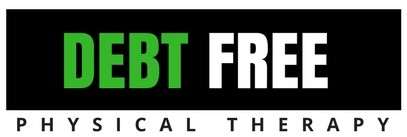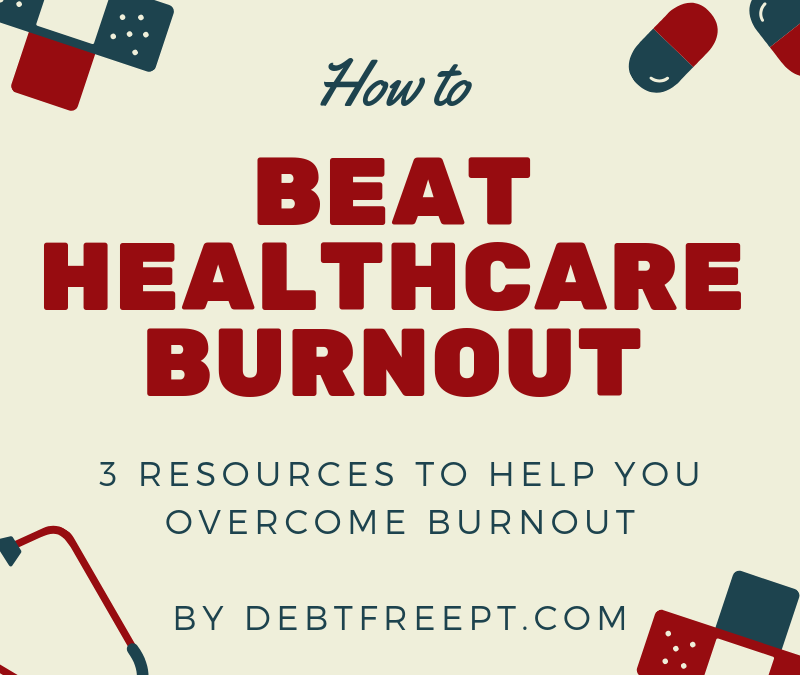Physical therapy is such an emotionally and physically draining job that it is easy to feel burnt out. Don’t get me wrong, there are many other jobs that are also physically and emotionally draining too and burnout is global crisis! But I’m a PT here to talk specifically about PT burnout.
I care passionately about the well being of my patients, but this attitude to “go above and beyond” often leads to the sacrifice of my own wellbeing. I’m sure many of you reading this article feel similar, heck, our caring attitude is likely why we chose PT versus other careers.
But burnout is real and too many of us feel it.
I ask you, “What can we do?”
What can we do to stop this feeling of burnout, which even new grads are already experiencing?
Why is Burnout Worse Than Ever Before?
I think it’s suspect that when I talk to older therapists they say that they never felt burnout until recently. Why is that?
My co-workers and myself come to the following conclusions:
- Schooling requirements used to be less. Yep, physical therapy used to a bachelor’s degree!! So you have individuals that were able to go to only 4 years instead of 7 years to start a PT career. That’s 3 more years of earning and 3 less years of school debt.
- Schooling used to cost less. MUCH less! I know people who graduated with only $20,000 or so in student loans. I do acknowledge that a physical therapist’s salary was lower back then as well, but some of my co-workers tell me that per diem rates and contract rates used to be much higher than today! Our salary has not equally risen with the increased education demand. This increased time in school coupled with dramatically increased student loan debt, leads to hundreds of thousands of lost wages for PT’s today versus PT’s of the past.
- Productivity rates coupled with documentation pressure is crazy high now! My co-workers used to tell me they could have several hours for lunch. They used to tell me they only spent several minutes per chat documenting, and that a simple sentence or so would suffice. Not today! Many of us spend an extra 5-10 hours per week of our own time, un paid, to finish documentation.
There are several other reasons for an increase in the fatigue and frustration in physical therapists, like the blurred line between legal and illegal productivity, but I think the above are some of the main points as to why PT’s of today are burning out like a wild fire.
What are the Solutions to Burnout?
The above were reasons why we feel exhausted and want to quit our profession at the end of the day. But what can we do about this?
This is a big question, and this article will not have all the answers.
But I can try to give a couple solutions that I’ve learned from experts and fellow therapists leading the movement to a better lifestyle for healthcare professionals.
Solution #1: Do not try to do everything.
We can’t avoid maintaining productivity to keep our jobs. But sometimes, we are too perfectionistic, too hard on our self, and we push ourselves too hard.
Try to set limitations with yourself and your patients.
This is tough, trust me. My fiancée’ often tells me this, and my retort is “But no one else will get them up. No one else is trying!”. But I’m trying to focus on doing my best, but if there is something I couldn’t finish, then this will just have to wait till tomorrow. It’s a work in progress!
Solution #2: Focus on mindfulness and mediation to calm your anxiety or depression
I’m not one for yoga and meditation. I’m more of a kick boxing person, get me a punching bag at the end of a rough week and let me just go at that bag! You’ll see a whole new Emma afterwards.
But, Erika Del Pozo MOTR/L of Joy Energy Time recommends mindfulness and mediation under stressful situations. She’s leading the way in preventing and avoiding burnout in healthcare professionals, and she advocates that we can try to change our perception of the day and the situation. She says it much more eloquently than me! But basically, when you feel down or depressed, try to focus on one positive thing that has happened. Focus on what you can control in your day and in your feelings, instead of the past or what you cannot change.
Solution #3: Perhaps it’s just time to leave and find a new career.
I hate to quit. Especially, if it was to quit the physical therapy profession. Many of us spent hundreds of thousands of dollars for our degrees and 7 or more years in school. It just feels so disheartening to leave a career after just a couple years.
But for some of us, PT was just not meant to be.
I really encourage people to try there best to try different settings and different facilities before leaving any profession. The grass may not be greener on the other side. I hear many people talk of going from PT to being a physician’s assistant or nurse practioner or nurse. But, I’m not convinced that this will solve the problem. These careers have student debt, strenuous days, are physically and emotionally taxing as well. To leave one healthcare career only to enter another one, now with even more debt, seems to be very risky. I just want you to do your due diligence before switching professions.
There is a rising trend for entrepreneurism as an attempt to solve burnout. I know many friends who have had success leaving patient care to become entrepreneurism. They are bloggers, coaches, and have online courses. But don’t be fooled. They are working hard, they work in the evenings and on the weekends, and they often don’t have steady income for several years. They tell me they feel burnout out too! This is an amazing route if successful, but I just want to be honest with you that this is hard work too!
If you want to leave your current job and patient care, the solution I highly recommend you look into before entrepreneurism and other healthcare professions, is non clinical careers. Meredith Castin, of the Non Clinical PT, often recommends the following two non clinical careers to transition to:
- Rehab Liaison: This is someone who talks to patient’s in acute care hospitals, advocating for that patient to go their specific rehabilitation facility. They also make sure the patient is appropriate to come to their facility as well. This job is a blend helping people and medical knowledge without the heavy lifting.
- Utilization Reviewer: A UR is someone who looks a healthcare charts and makes sure you are documenting correctly and appropriately. It may get a little dry, but you may be able to work from home!
There are several other non clinical roles that are amazing including tele health (semi non clinical), writing, coding, and medical sales. New roles are being made every day.
Are you feeling any better?
I know this article may not have solved all your problems, but perhaps it has helped guide you to some new resources or helped remind you of some simple practices to try.
Burnout is a complex issue that is not going to be solved just by practitioners. Schools and healthcare associations also need to get involved. But changing rules and regulations will take years to implement. So for now, focus on helping others have a voice, helping pace yourself at work, and keep advocating for change. Thank you!
Also, I would love to know how you are combating burnout? Let’s share our tips and help each other out!






